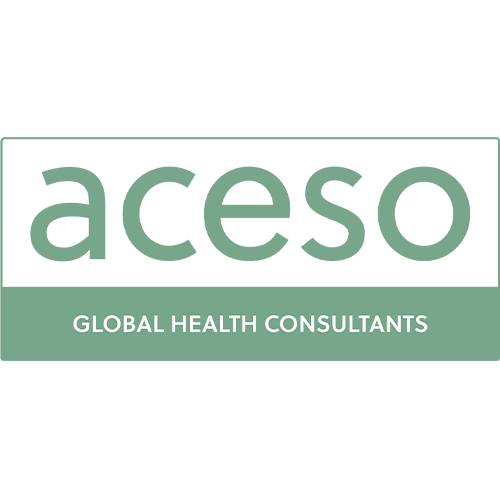Forging a Gender-Equal Future in Public Health (International Women's Day 2022)
- Srishti Shankar

- Mar 8, 2022
- 4 min read
Updated: Mar 9, 2022

The significance of celebrating International Women’s Day is demonstrated in the history behind its emergence. The movement began in Germany in the year 1914 when International Women’s Day was held for the very first time, it was dedicated to fighting and standing up for women’s right to vote. During the years- 1914 to 1917, we saw the emergence of various women’s rights movements at a global pace. The United Nations celebrated its first International Women’s Day in the year- 1975.
One hundred eight years down the line, here we are celebrating International Women's Day 2022 (IWD 2022) with a theme -"Gender equality today for a sustainable tomorrow". The theme for this year raises awareness on the contributions made by women and girls around the globe and their diligence in leading numerous campaigns on mitigation, climate change adaptation, and building a more sustainable future for all. Especially during these unprecedented times, there is a greater need to forge a world free of bias, stereotypes and discrimination, a world that's diverse, equitable, and inclusive.
You might wonder how relating gender equality with climate change has become the theme of this year? Well, climate change is one of the greatest challenges of the 21st century.
It is clear that some communities are impacted most deeply. Women are increasingly being recognized as more affected by climate change adversities than men, the reason behind this is quite simple: they are more dependent on natural resources (which climate change threatens the most).
The key to bridging the gender equality gap and having greater involvement of women in not only science but in other career paths lies in the education of the girl child.
-Somebi Anwunah, Senior Associate at Aceso Global Health Consultants
Looking at Public health through the lens of sustainability:
While the UN theme promotes a sustainable tomorrow through gender equality, the public health domain poses the highest degree of involvement in sustaining resources and mandating services for the most affected communities, including women. It should be noted that many health and sustainability problems emerge due to society's appropriation of natural resources. Since women work closely in undermining all agricultural practices, the effects on the agriculture sector (due to climate change) have been affecting women in a multitude of ways.
The interconnectedness of sustainability and public health does mention 'climate change'; as a factor that has deteriorated public health to a significant extent. Climate change continues to affect significant social and environmental determinants of health: clean drinking water, clean air, sufficient food and shelter.
“Women are critical to the advancement of public and global health, among other related fields and industries. The voices and perspectives of women are key in ensuring that policies and programmes are rooted in gender equality and equity, and reflect their unique experiences. Open dialogue and inclusive environments for both women and men to express themselves and engage in innovative thinking are necessary to shape the future of public and global health, and ensure its sustainability”.
-Olivia Taylor, Associate at Aceso Global Health Consultants
Narrowing the gap during the pandemic
Pandemic has demonstrated the emergence of some of the most terrific examples of women's work in the global and public health sectors. One such example is The Public Health Institute's president and chief executive officer, Mary A. Pittman, DrPH, whom Modern Healthcare has recognized as one of the Top 25 Women Leaders in healthcare. She guided the implementation of initiatives that prevented COVID-19 transmission, helped administer hundreds of thousands of vaccines and saved lives. Her work is based on a study of- 'fight for better public health through initiatives on COVID-19, substance use disorders and social inequities'.
Other influential women in leadership roles include Amanda Pritchard, chief operating officer (COO) of the NHS in the UK and Dr Zsuzsanna, deputy director-general of the World Health Organisation (WHO), who contributed tremendously during COVID-19.
Under her leadership, the ECDC became an “internationally respected centre of excellence in the fight against infectious diseases” — according to the WHO.
Women are indeed at the forefront of the battle against the pandemic as they make up almost 70% of the healthcare workforce (exposing them to a greater risk of infection). This is especially shocking as women are under-represented in the healthcare sector's leadership and decision-making processes. This is further demonstrated in the global healthcare community, where women constitute an estimated two-thirds of the health workforce worldwide. However, while women make up around 85% of the nurses and midwives in 104 countries, they continue to be underrepresented among physicians, dentists, and pharmacists.
Almost half of the doctors in the OECD countries are women, and they also constitute 90% of the long-term care workforce in the OECD countries. Even though most healthcare workforce is female, women still make up only a minority of senior or leadership positions in health.
Forging an equal future with us
Aceso Global Health Consultants continue to address social issues centred around women with the hurdles they face in public health. With this as the cornerstone, we aim to promote women's leadership and improve women's health and sustainability through our various works.
One of our award-winning programmes, with the University of College London (UCL), Nurture Early for Optimal Nutrition Programme (NEON)is a multidisciplinary research team aiming to support women through various health trials and practices. Including optimising infant feeding, care, and dental hygiene practices among children (under two years old) of South Asian origin in East London.
This International Women's Day, we continue to foster an equal climate for women to develop and forge a safe environment where difference is valued and celebrated. Only collectively, we can create gender equality and build a sustainable future for all.
Interested in starting your career with us?
Write to us at: admin@acesoghc.com
References:




Comments